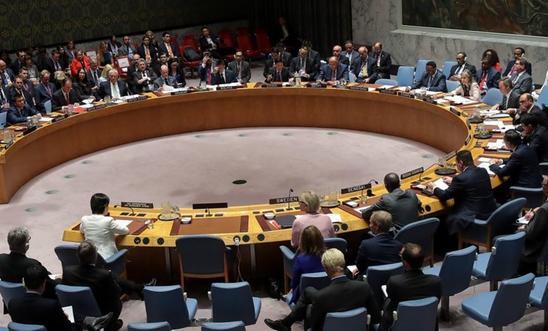
The UN Security Council must do everything it can to end the crimes against humanity and ongoing ethnic cleansing of the Rohingya people in Myanmar, including by imposing a comprehensive arms embargo on the country, Amnesty International said.
The Council is holding a public session on the situation today, when Secretary-General Antonio Guterres will brief members on the current crisis in Rakhine State.
Tirana Hassan, Amnesty International's Crisis Response Director, said:
"The Myanmar military is forcibly displacing and killing Rohingya, a campaign of crimes against humanity that amounts to ethnic cleansing. When they meet, UN member states must ask themselves what side of history they want to be on and do everything they can do end this nightmare. Together, they do have the power to pressure Myanmar to end the violence.
"The Security Council should put an immediate end to the transfer of all arms, munitions and related equipment to Myanmar by imposing a comprehensive arms embargo. This should cover both direct and indirect supply, and also ensure that training and other assistance to the Myanmar army ends."
The UN meeting comes almost exactly one month after the Myanmar military launched a brutal operation in Rakhine State. This was in response to attacks carried out on dozens of security posts, killing at least 12 members of the security forces, for which the Rohingya armed group, the Arakan Rohingya Salvation Army, claimed responsibility.
Since then, almost half-a-million refugees have poured across the border into Bangladesh, meaning that almost half of the 1.2 million people living in Rakhine State have fled their homes and scores have been killed in little more than a month.
Amnesty has documented how Myanmar security forces have torched whole villages inside Rakhine State and fired on people trying to flee, a widespread and systematic attack on the civilian population that constitutes crimes against humanity. Despite the Myanmar government's claims that the military operations have stopped, the organisation was also able to confirm new burnings of villages as late as last week.
The situation has been made worse by the severe restrictions Myanmar has imposed on aid groups in Rakhine. Amnesty has received credible reports that fear of starvation is driving more people from their homes, as many Rohingya are stranded in villages with little or no access to food.
Tirana Hassan said:
"This crisis is far from over, and there is no question that violations are continuing unabated inside Rakhine State. More than ever, the world needs to take a strong stand and push Myanmar and its security forces to end the horrors they are inflicting on the Rohingya population.
"We want the Security Council to issue a public statement condemning the atrocities in Rakhine State, while urging an end to violence and immediate and unfettered access for humanitarian aid groups."
Thailand's hard line on refugees leaves thousands vulnerable and at risk
Meanwhile, Amnesty has also called on Thailand to take action to reverse its long-standing failure to offer protection to the Rohingya as a new report revealing gaping holes in the country's refugee policies.
The report, 'Between a Rock and a Hard Place', outlines a number of failures by the Thai government in policy and practice that have a devastating impact on refugees both within the country and seeking safety there. These include Thailand's long-standing practice of using its navy to repel boats carrying thousands of desperate Rohingya refugees and Bangladeshis, as well as its forcible return of refugees and asylum-seekers to places where they risk torture and other serious human rights violations.
Audrey Gaughran, Amnesty International's Director of Global Issues, said:
"With ethnic cleansing forcing hundreds of thousands of Rohingya out of Myanmar, Thailand urgently needs to set a regional example by adopting humane refugee policies. Instead of callously repelling people fleeing unimaginable horrors, the Thai government should ensure safe passage for those seeking international protection in Thailand.
"Thailand hosts one of the largest refugee populations in the region, but its myopic, ad hoc policies mean it fails to offer them proper protection. The authorities cannot continue to lurch from one refugee crisis to the next; and instead must set up the systems required to offer these men, women and children who are at risk the safety and security they need."

No comments:
Post a Comment
Your comment will be approved soon and your email will not be published.. thanks..